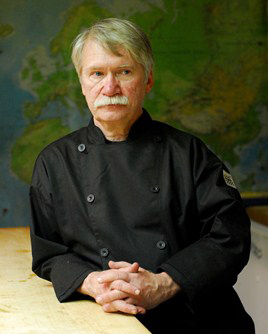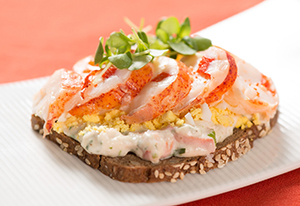Mayo’s Clinic: Assessment Methods, Part III
Friday, 07 November 2014 03:00
 Dr. Mayo continues his discussion of tried-and-true and novel assessment ideas, as well as common methods whose usefulness in your program might be dated. This month he examines evaluating food preparation and dining-room service.
Dr. Mayo continues his discussion of tried-and-true and novel assessment ideas, as well as common methods whose usefulness in your program might be dated. This month he examines evaluating food preparation and dining-room service.
By Dr. Fred Mayo, CHE, CHT
Last month, we discussed oral presentations and class participation. This month, we will examine evaluating food preparation and dining-room service, and next month, this column will discuss the topic of assessment criteria and rubrics, building on ideas presented in my previous three articles (Assessment Methods I, II and III).
Evaluating Food Preparation
The most challenging and important aspect of evaluation in culinary classes involves assessing student performance in preparing food. There are so many aspects to this challenge, including knife skills, station set up, mise en place, food-safety habits, ingredient use, use of heat, basic cooking principles, consistency, creativity, palate development and plate presentation, as well as professionalism during the entire process.

 For newer culinary-arts teachers, ordering can seem a daunting task. But it’s really quite simple, says Chef Weiner, who suggests three basic ways to order for day-to-day teaching (while taking into consideration two common snags). His chief advice? Under order.
For newer culinary-arts teachers, ordering can seem a daunting task. But it’s really quite simple, says Chef Weiner, who suggests three basic ways to order for day-to-day teaching (while taking into consideration two common snags). His chief advice? Under order. As much as our primary educational mission is to prepare students to be professionally successful in their chosen career, Chef Sorgule asserts our obligation extends far beyond: Educators have a responsibility to help mold good citizens, community leaders and honorable members of society.
As much as our primary educational mission is to prepare students to be professionally successful in their chosen career, Chef Sorgule asserts our obligation extends far beyond: Educators have a responsibility to help mold good citizens, community leaders and honorable members of society. From recipes to roe, and from properly extracting meat from the shell and paring it with wines, this free online learning course from The Culinary Institute of America is suitable for culinary-arts students in class and as homework.
From recipes to roe, and from properly extracting meat from the shell and paring it with wines, this free online learning course from The Culinary Institute of America is suitable for culinary-arts students in class and as homework. A successful, time-honored business in Northern California projects saving 65% of current energy usage thanks to a new solar-energy system it recently installed, helping to shape the future of the baking industry.
A successful, time-honored business in Northern California projects saving 65% of current energy usage thanks to a new solar-energy system it recently installed, helping to shape the future of the baking industry.